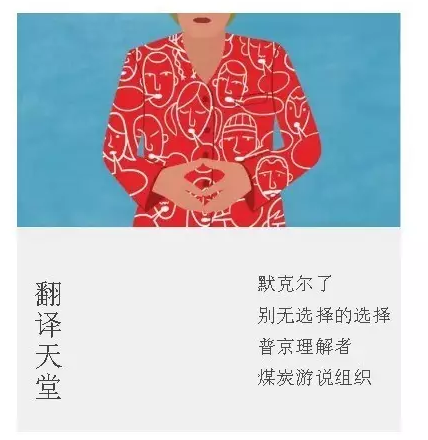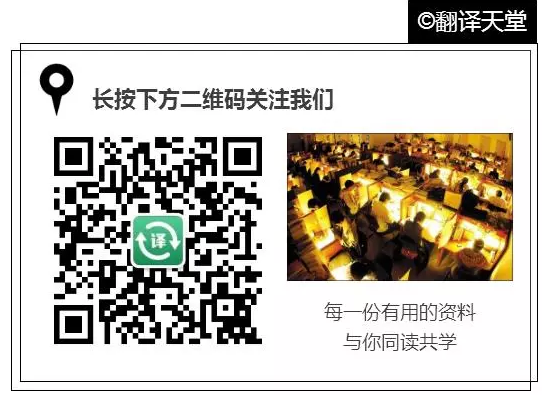A guide to understanding the German election

库柏:在德国,把两个已有词汇拼起来就构成一个新词。解读德国大选的一种方式,就是看看德国现在流行的政治词汇。
In German you can create new words almost ad infinitum, usually by bolting existing words together. One way to understand Germany’s elections of September 24 is therefore to look at the country’s current political vocabulary, from Genderwahn to merkeln.
在德国,你几乎可以无限地创造新词,通常是把两个已有词汇拼在一起。因此,解读9月24日的德国大选的一种方式,就是看看德国现在的政治词汇,无论是“性别错觉”(Genderwahn)还是“默克尔了”(merkeln)。
Autoland (literally, land of cars). On the upside, the car industry is Germany’s economic motor. On the downside, the Autolobby is also often Germany’s political motor, much as Wall Street is in the US or the City in the UK. Germany’s Autokartell (car cartel) has its own revolving door with politics. Most blatantly, Matthias Wissmann, president of the automobile industry’s trade body, is a former Christian Democratic transport minister. The German foreign minister Sigmar Gabriel (sometimes known as Siggi Pop) was a government representative on Volkswagen’s supervisory board and later worked for a communications firm that advised the company.
“汽车之邦”(Autoland)。好处是,汽车业是德国的经济发动机。坏处是,汽车游说组织往往也是德国的政治发动机,就像华尔街之于美国、或者伦敦金融城之于英国。德国的“汽车卡特尔”(Autokartell)有自己通往政界的旋转门。最为明显的是,德国汽车工业联合会(German Automobile Industry Association)主席马蒂亚斯•维斯曼(Matthias Wissmann)来自基督教民主联盟(Christian Democratic),曾担任交通部长。德国外长西格马尔•加布里尔(Sigmar Gabriel,有时被称为西吉老伯(Siggi Pop))曾是大众汽车(Volkswagen)监事会的政府代表,后来曾在一家为该公司提供咨询的传播公司工作。
Cosseted by government, car companies felt free to lie for years about their diesel emissions, until Dieselgate (or der Abgasskandal) broke in 2015. The Autolobby also moderates the much-trumpeted German Energiewende , or shift away from fossil fuels. Germany will reduce emissions only insofar as that doesn’t upset carmakers, the small but potent Braunkohle-Lobby (coal lobby) or, indeed, green Fundis (fundamentalists) who insisted the country scrap its nuclear reactors.
在政府的纵容下,汽车企业任意妄为,在柴油汽车尾气排放问题上欺骗公众多年,直到2015年“排放门”(der Abgasskandal)曝光。汽车游说组织还阻碍了大受吹捧的“德国能源转型”(German Energiewende)——摆脱对化石燃料能源的依赖。德国的减排措施将只在不惹恼汽车制造商、小而强悍的“煤炭游说组织”(Braunkohle-Lobby)、以及坚持要求政府废弃核反应堆的环保“原教旨主义者”(Fundis)的情况下推进。
Gutmensch (good person). The word is mostly used pejoratively, to describe supposedly naive leftie self-hating Muslim-hugging Germans. Bahnhofsklatscher (literally, station clappers) are the Gutmenschen who stood in train stations in September 2015 applauding arriving refugees. The Bahnhofsklatscher themselves thought they were expressing a new German Willkommenskultur (welcoming culture).
“好人”(Gutmensch)。现在这个词基本上是贬义词,用来形容看似单纯、自我仇恨、欢迎穆斯林的德国左翼。“车站鼓掌者”(Bahnhofsklatscher)是2015年9月在火车站鼓掌欢迎抵埠难民的“好人”。“车站鼓掌者”自认为他们在弘扬一种德国人的新“好客文化”(Willkommenskultur)。
The rival tribe to the Gutmenschen are the Wutbürger (furious citizens). Gutmenschen and Wutbürger are roughly Germany’s equivalents of “Blue” and “Red” Americans, but with less risk of civil war. Older Wutbürger are sometimes known as Hassrentner (hate-pensioners), though Wutbürger prefer to call themselves besorgte Bürger (concerned citizens). They berate Gutmenschen for their Hypermoral (hypermorality) and Genderwahn (delusions about gender issues).
与“好人”对立的一种人是“愤怒公民”(Wutbürger)。德国的“好人”和“愤怒公民”相当于美国的“蓝”营与“红”营,但引发内战的风险没美国那么高。年纪较大的“愤怒公民”有时被称为“仇恨的退休老人”(Hassrentner),尽管“愤怒公民”倾向于自诩为“忧心的公民”(besorgte Bürger)。他们斥责“好人”的“高道德感”(Hypermoral)和“性别错觉”(Genderwahn,对性别问题存在错觉)。
Lügenpresse (lying press) is one of several words favoured by the Nazis and now revived by Wutbürger. Another is Volksverräter (traitor to the people), which can be applied to any mainstream politician. Frauke Petry, leader of the far-right Alternative für Deutschland party, got into trouble for trying to revive völkisch, an adjective that historically connotes a racially defined German people, or Volk.
“说谎的媒体”(Lügenpresse)曾经是纳粹党最喜欢的词汇之一,如今被“愤怒公民”重新启用。另一个词是“种族叛徒”(Volksverräter),可适用于任何主流政客。极右翼政党德国新选择党(Alternative für Deutschland)的领导人弗劳克•彼得里(Frauke Petry)由于试图重新启用“种族的”(völkisch)一词而陷入困境。这个词在历史上曾用于指代被定义为一个种族的德国人,或者说德国种族(Volk)。
Mutti (Mummy), the nickname of current and future chancellor Angela Merkel. After 12 years as chancellor, Merkel is regarded by many Germans almost as a family member. Her tics are instantly recognisable. The Raute, or diamond, is the shape she makes with her hands when posing for photographs. (According to conspiracy theorists cited by the British Daily Express tabloid, the “secret hand sign” betrays her membership of the Illuminati secret society.) Postwar Germans prefer their chancellors familiar, Christian Democratic and dull: Konrad Adenauer served for 14 years and Helmut Kohl for 16.
“妈咪”(Mutti)是现任(以及下一任)德国总理安格拉•默克尔(Angela Merkel)的昵称。在默克尔担任总理长达12年后,很多德国人几乎把她视为家庭成员。她的面部抽搐人们能马上看出来。“钻石形手势”(Raute),是她拍照时做的手势。(据英国小报《每日快报》(Daily Express)援引阴谋论者的话表示,这种“秘密手势”暴露了她身为秘密组织“光明会”(Illuminati)成员的身份。)二战后,德国人倾向于选择他们熟悉的、来自基督教民主联盟、并且四平八稳的总理:康拉德•阿登纳(Konrad Adenauer)当了14年总理,赫尔穆特•科尔(Helmut Kohl)当了16年。
Merkel even has her own verb, merkeln, which means to not make decisions, to kick the can down the road, as has been her general strategy during the Eurocrisis. (Popular usage: “Asked to attend his mother-in-law’s birthday, he merkelte.”)
默克尔甚至有了她自己的动词——“默克尔了”,指不做决定、能拖则拖,正如她在欧债危机期间的总体战略一样。(一般用法:“让他去参加继母的生日,结果他默克尔了。”)
Merkeln doesn’t necessarily stem from cowardice or indecisiveness. Rather, Merkel believes that if you don’t immediately try to solve a problem, the problem often either changes or goes away. Merkeln entails ignoring media who demand a solution this week, when governments ought to be thinking 20 years ahead.
“默克尔了”不一定是因为懦弱或犹豫不决。相反,默克尔认为,如果你不立即试图解决问题,问题往往会改变或消失。“默克尔了”要求政府不理会往往要求本周内就拿出解决方案的媒体,在考虑问题时预先想到20年后的情况。
When Merkel does make a decision, she typically calls it alternativlos, meaning without alternative. Alternativlos is less combative than Margaret Thatcher’s beloved acronym Tina (There is no alternative). Merkel presents alternativlos more as a matter of calmly arriving at the only sensible solution.
当默克尔做决定时,她通常称之为“别无选择的选择”(alternativlos)。这个词没有玛格丽特•撒切尔(Margaret Thatcher)所钟爱的缩写词TINA(There is no alternative,没有别的选择)那么强硬。默克尔说“别无选择的选择”时,更像是冷静地选择了唯一合理的解决方案。
Putinversteher (those who understand Putin). The word is used sardonically to describe German establishment figures who go around explaining that the Russian president is misunderstood in Germany, an essential partner, etc. Germany’s senior Putinversteher is former chancellor Gerhard Schröder, now poised to join the board of the Russian state-controlled oil company Rosneft.
“普京理解者”(Putinversteher),指那些理解普京的人。这个词用来讽刺某些德国建制派人物,他们四处解释德国对这位俄罗斯总统存在误解、普京是必不可少的伙伴等等。德国的资深“普京理解者”是前总理格哈德•施罗德(Gerhard Schröder),如今他准备进入俄罗斯石油公司(Rosneft)的董事会。
Schwarze Null (literally, black zero) refers to the German government’s policy of aiming for a budget that’s either balanced (zero) or in the black. After 44 years of deficits, the state has scored three black zeros in a row since 2014. This is a source of pride in Germany and of chagrin in other European countries, which want Germany to be their economic locomotive. German scorn for foreign debtors is captured in the tabloid phrase Pleite-Griechen (literally, broke Greeks). Always remember that the German word Schuld means both debt and guilt.
“黑零”(Schwarze Null)指德国政府以保持预算平衡(零)或盈余(黑字)为目标的政策。在44年的预算赤字后,德国自2014年起已经实现了连续三年的“黑零”。这令德国自豪,也令欧洲其他国家苦恼——欧洲其他国家希望德国成为它们的经济火车头。德国对外国债务人的鄙视,可以从小报常用的“破产的希腊人”(Pleite-Griechen)一词中窥见一二。别忘了,德语词汇“Schuld”既表示债务,也表示罪行。
Umvolkung (roughly, forced change in the population’s ethnic composition). The word captures the fears of Wutbürger that Merkel is replacing their Volk with Muslims and other Passdeutsche (passport Germans). A related word is Volkstod, or death of the people.
“非种族化”(Umvolkung,意思大致是,强制改变人口的种族构成)。这个词体现了“愤怒公民”的如下恐惧,即担心默克尔正在用穆斯林和其他“护照德国人”(Passdeutsche)取代他们的种族。与之相关的一个词是“种族灭亡”(Volkstod)。
插图由哈里•海索姆(Harry Haysom)提供
译者/马柯斯
来源:FT中文网











